 2 citations,
January 2019 in “Medizinische Genetik”
2 citations,
January 2019 in “Medizinische Genetik” The document reports findings on genetic research, including ethical concerns about genome editing, improved diagnosis of mitochondrial mutations, solving inherited eye diseases, confirming gene roles in epilepsy, linking a gene to aneurysms, and identifying genes associated with age-related macular degeneration.

Accurate diagnosis and timely, tailored treatments improve outcomes in obstetrics and gynecology.
1 citations,
March 2024 in “Nanomaterials” Biomimetic scaffolds are better than traditional methods for growing cells and could help regenerate various tissues.
1 citations,
June 2017 in “The journal of investigative dermatology/Journal of investigative dermatology” The symposium highlighted the skin's role in sensing itch, pain, touch, and pleasure, and discussed new research and techniques for understanding and treating these sensations.
 December 2023 in “Dermatologic Surgery”
December 2023 in “Dermatologic Surgery” The skin-responsive device improved beard and body hair transplant success and increased surgeons' willingness to perform the procedure.
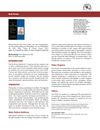 March 2015 in “Aesthetic Surgery Journal”
March 2015 in “Aesthetic Surgery Journal” The book is a valuable, comprehensive guide on hair transplantation, recommended for surgeons and students, with minor areas for improvement.
 5 citations,
November 2021 in “Plastic and Reconstructive Surgery”
5 citations,
November 2021 in “Plastic and Reconstructive Surgery” Using special stem cells, we can create new hair follicles, potentially making hair restoration easier and more affordable.
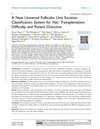 4 citations,
June 2022 in “Clinical, cosmetic and investigational dermatology”
4 citations,
June 2022 in “Clinical, cosmetic and investigational dermatology” The new SFS Scale predicts hair transplant difficulty using hair and skin types, with thick skin and coily hair being hardest to work with.
 8 citations,
March 2006 in “Seminars in Cutaneous Medicine and Surgery”
8 citations,
March 2006 in “Seminars in Cutaneous Medicine and Surgery” Hair transplantation has improved to look more natural, but managing patient expectations and using precise techniques are key for the best outcomes.
 4 citations,
January 2018 in “Hair transplant forum international”
4 citations,
January 2018 in “Hair transplant forum international” The document suggests changing "Follicular Unit Extraction" to "Follicular Unit Excision" to more accurately describe the surgical hair transplant procedure.
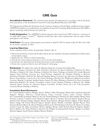 July 2011 in “Facial Plastic Surgery”
July 2011 in “Facial Plastic Surgery” The document provides a quiz for physicians to earn continuing medical education credits in facial plastic surgery.
June 2024 in “Regenerative Therapy” iPSCs show promise for hair regeneration but need more research to improve reliability and effectiveness.
 May 2014 in “Annals of Plastic Surgery”
May 2014 in “Annals of Plastic Surgery” The book is highly praised as an essential resource for plastic surgeons, despite minor gaps.
 32 citations,
February 2017 in “Oncotarget”
32 citations,
February 2017 in “Oncotarget” Cellular senescence has both cancer-blocking and cancer-promoting effects, and targeting senescent cells may improve health and lifespan.
 1 citations,
August 2013 in “Facial Plastic Surgery Clinics of North America”
1 citations,
August 2013 in “Facial Plastic Surgery Clinics of North America” Hair restoration has evolved into a refined art, providing happiness to patients and doctors.

Autonomous robotic surgery is advancing but still requires human supervision for complex procedures.
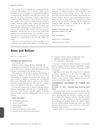 September 2016 in “British Journal of Dermatology”
September 2016 in “British Journal of Dermatology” The document discusses new cosmetic dermatology technologies, safety, robotic hair restoration, and upcoming courses on genomics and skin cancer management.
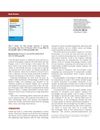 January 2015 in “Aesthetic Surgery Journal”
January 2015 in “Aesthetic Surgery Journal” The book is a valuable resource for learning about new cosmetic dermatology treatments, despite some content overlap and inconsistent visuals.
 February 2024 in “Journal of Robotic Surgery”
February 2024 in “Journal of Robotic Surgery” The document concludes that surgical robots improve surgery and recovery but are costly and can stress surgeons due to less patient contact.
 September 2023 in “International journal of medicine”
September 2023 in “International journal of medicine” AI is revolutionizing healthcare by improving diagnosis, treatment, and monitoring, but still needs close supervision.
 December 2023 in “Research and reports in urology”
December 2023 in “Research and reports in urology” A young man with high-grade prostate cancer had successful surgery and good recovery, highlighting the need for awareness in younger men.
 September 2011 in “Cancer”
September 2011 in “Cancer” Men who start losing hair at 20 may have a higher chance of getting prostate cancer later.
 January 2012 in “Human health handbooks”
January 2012 in “Human health handbooks” Traditional Indian remedies are used for hair health, but more scientific evidence is needed to prove their safety and effectiveness.
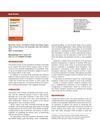 August 2014 in “Aesthetic Surgery Journal”
August 2014 in “Aesthetic Surgery Journal” Book covers all aspects of hair restoration surgery, highly recommended.
 3 citations,
September 2019 in “Journal of Orthodontics”
3 citations,
September 2019 in “Journal of Orthodontics” A boy's hair grew back after he stopped using orthodontic headgear that caused temporary hair loss.
 25 citations,
September 2006 in “Birth Defects Research”
25 citations,
September 2006 in “Birth Defects Research” Different processes create patterns in skin and things like hair and feathers.
 3 citations,
July 2018 in “Journal of Oral and Maxillofacial Surgery”
3 citations,
July 2018 in “Journal of Oral and Maxillofacial Surgery” Hair loss can occur after oral surgery, likely due to stress and pressure on the scalp, and usually gets better on its own.
 1 citations,
April 2017 in “Journal of Investigative Dermatology”
1 citations,
April 2017 in “Journal of Investigative Dermatology” SM04554 may increase hair growth as a topical treatment for androgenetic alopecia.
 April 2017 in “Journal of Investigative Dermatology”
April 2017 in “Journal of Investigative Dermatology” The document concludes that various topical treatments show promise for skin conditions like atopic dermatitis, psoriasis, and hair loss.
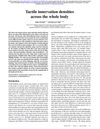 4 citations,
April 2020 in “bioRxiv (Cold Spring Harbor Laboratory)”
4 citations,
April 2020 in “bioRxiv (Cold Spring Harbor Laboratory)” The skin has about 230,000 touch-sensitive nerve fibers, with high concentrations in the hands and face.


























